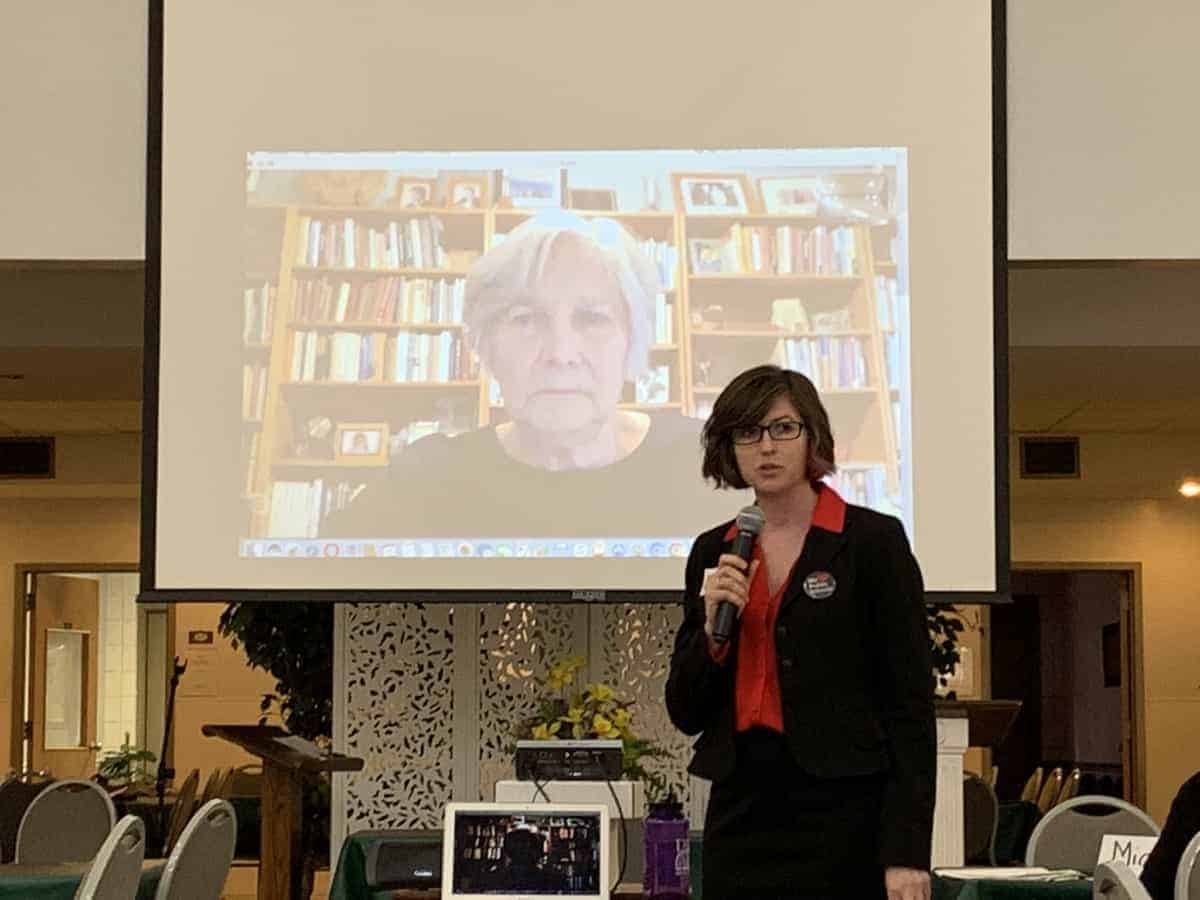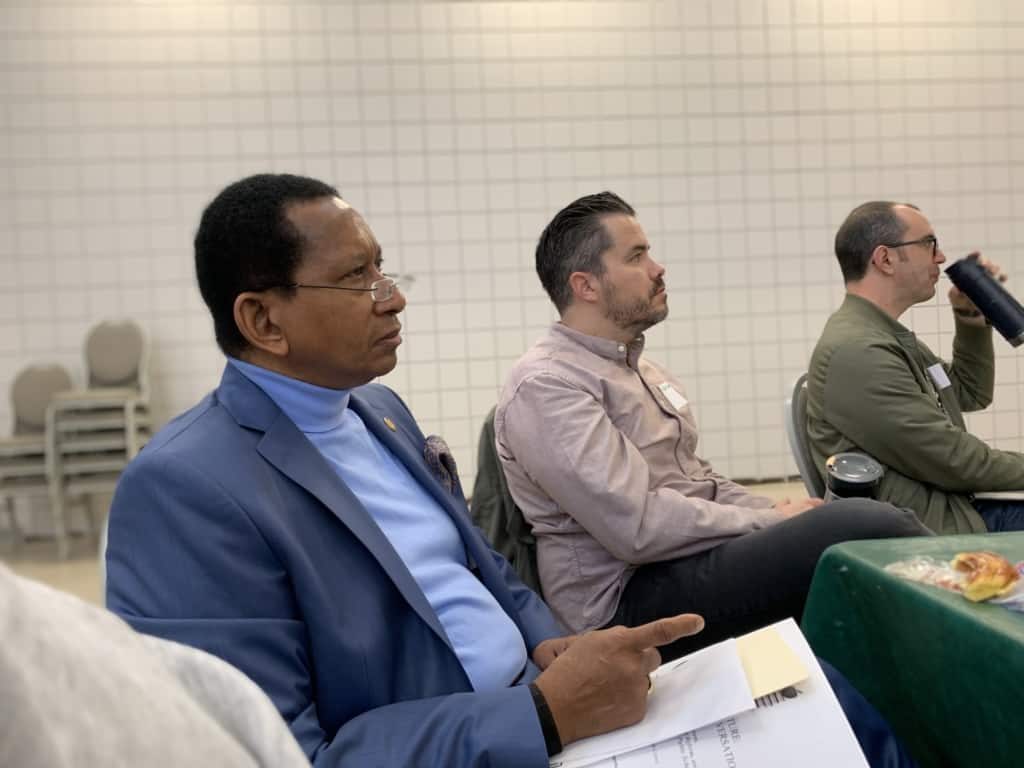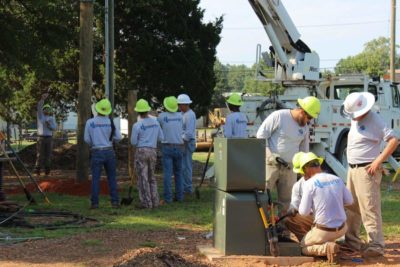

What if your doctor ran tests during your visit, analyzed them, and then, rather than discussing how things are going and how to improve your health, sent you home with a pass or fail grade? What if your doctor asked you to come back next week, only to convey how your health compares to others in your county or state?
That’s how Diane Ravitch said standardized testing is used in North Carolina, speaking via videoconference to a group of educators and advocates gathered at Temple Baptist church in Raleigh for an event labeled “Testing Culture: A Community Conversation.” Ravitch, a founder of the Network for Public Education, says standardized testing is being misused in North Carolina, among other states. The most effective use, she says, is for diagnosing a student’s competency at the time of the test and using it as a tool for teachers to determine how to help students improve their educational health.
“Tests today have no diagnostic value whatsoever,” she said. “So standardized testing is being totally misused to judge everybody for accountability purposes, and it’s not supposed to be used that way. The value of a test is to say what the children know and what do they not know. And that is information that a teacher can then use to say, ‘Johnny or Mary or Maria needs more work on this and they’ve mastered this so they can move onto the next level.’”
Ravitch gave her talk via Skype as part of a four-hour event organized by N.C. Families for School Testing Reform, Save Our Schools, and Jen Mangrum, who is a candidate for State Superintendent of Public Instruction. Saturday’s assembly, Mangrum said, was not a campaign event. In fact, she said she invited current State Superintendent Mark Johnson, who is also a vocal advocate for less testing in North Carolina. Mangrum also said she invited every member of the state Senate and House, leaders at the Department of Public Instruction, and other state officials with an interest in education.
One of those who did attend was State Sen. Floyd McKissick, D-Durham.
“I was fascinated to hear and learn more about concerns about our testing culture in the state,” McKissick said. “It’s a subject matter that has interested me for a while, so I thought the more I could listen, learn, and receive insight, the better.”


“It was interesting to hear the expert talk about how you use testing for diagnostic purposes — to assist students and not sit there just assessing teacher performance or things of that nature,” McKissick continued. “Really, just that it’s not being used effectively as a diagnostic.”
McKissick said, though, that he has not heard good plans of action yet from his colleagues in either chamber.
“I hear the rhetoric, but I’m not seeing much in terms of substance,” he said. “I think it’s about collaborating. It’s about doing it in a way that brings Democrats and Republicans together, along with educational experts, to really re-think the traditional paradigm and talk about what we can do better in North Carolina.”
For the educators in attendance, this is a deeply personal issue. Many talked about the correlation between their low-income students and low standardized testing results — a notion echoed by Ravitch who pointed to the recently uncovered college admissions scandal. Most teachers shared frustrations about not knowing what’s on the test, but feeling the pressure to teach a curriculum designed for success on standardized testing anyway.
“I feel like there’s a lot of talk, but I don’t necessarily see a lot of action from the General Assembly,” said Dane West, a seventh-grade social studies teacher in Lee County Schools. “Even the state Superintendent is talking about reducing the test questions — okay, great. But then every single question counts more. The stress is still there. Those kids are still going to get a letter, every year, from the state saying that if they got below a 3, they are not on track to be college or career ready. And they’re 12.”
West said his frustrations are secondary, however, to the frustrations he sees on the faces of his students who perform poorly on the standardized examinations.
To Ravitch’s point, West acknowledged that he cannot help his students understand the concepts they struggled with better. This is because the tests are drafted and scored by a private company, and because the questions are protected by copyright laws, the testing services do not provide anyone with the questions. In fact, teachers do not even see the results.
“We don’t have any insight, we don’t make any contributions to the test that they’re given,” West said. “Truthfully, we’re not even supposed to look at the test, it says in the booklet. So we don’t know what’s on it. It’s rough.”
The day was full of discussion around the challenges of standardized testing as currently used in North Carolina. As to the solution, Ravitch had one suggestion.
“How about let teachers write their own tests?” Ravitch said.


